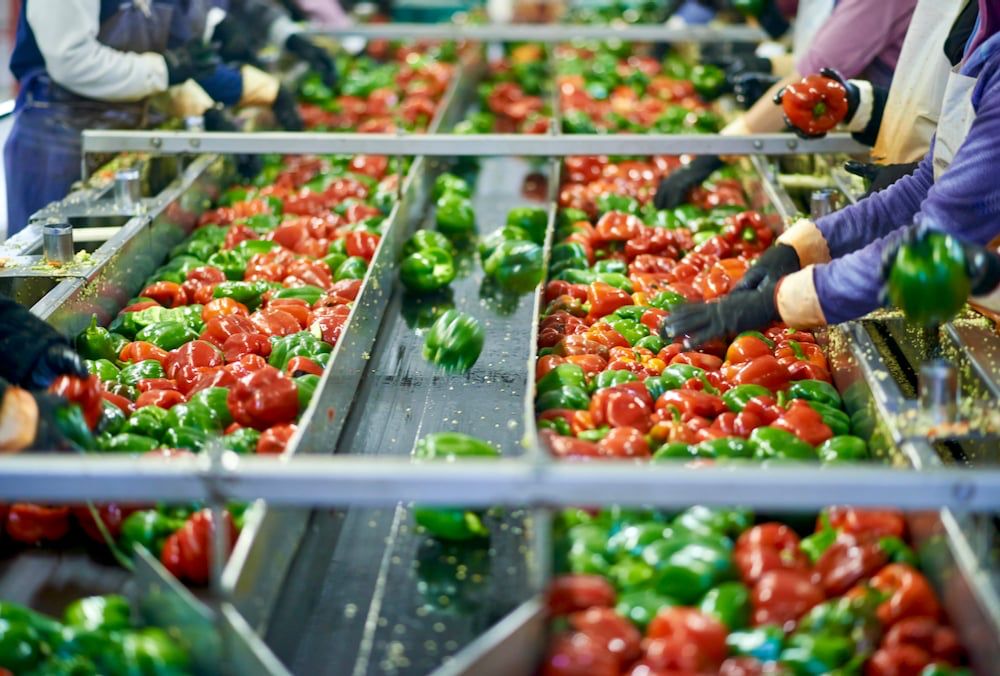Business
Agro-food sector: An underrepresented sector on the stock exchange
With only 7 listed companies out of more than 2,000 active in the sector and a weight of only 5% of the total market capitalization, the agro-food sector remains weakly represented on the Casablanca market.

If there is one sector that plays a driving role in the national economy, in job creation and exports, it is the agro-food sector. The sector generates an annual turnover of about 185 billion dirhams, produces a value added of more than 30 billion dirhams, contributes 30% to industrial GDP, and accumulates exports of 43 billion dirhams, which have doubled in ten years.
However, the agro-food sector is underrepresented on the stock market, its market capitalization is low, and the trading volumes of the listed stocks are not very high. Indeed, only seven companies in the sector are listed, while the country has more than 2,000 operating in agro-food across all activities.
The first companies to go public date back to 1943 with «Société des Boissons du Maroc» (SBM) Moroccan Beverage Company and the most recent, Mutandis in 2018.
Moreover, the sector’s market capitalization does not exceed 42 billion dirhams, representing only 5% of the total equity market capitalization. This is largely driven by a single stock, Cosumar, which accounts for nearly 20 billion dirhams, or half of the sector’s stock market representation.
Far behind are Lesieur Cristal in second place with 7.7 billion dirhams, SBM with 5.7 billion, Mutandis with 2.8 billion, Oulmès with 2.4 billion, Dari Couspate with 1 billion, and Cartier Saada with 174 million dirhams. For comparison, the banking sector accounts for 35% of capitalization, construction and building materials 13%, and telecoms 11%, with a single listed company: Maroc Telecom.
The sector’s stock market performance follows the general index. Since the beginning of the year, the sector rose by 7.4%, compared to 16% for the MASI index.
Resilience to disruptions
Commercially and financially, the sector has gone through several turbulent phases but has shown strong resilience to external and internal events. Since 2020, it has suffered from supply chain disruptions, then the surge in raw materials prices in 2021, especially vegetable oils and cereals, which significantly impacted profit margins.
This was accompanied by an unprecedented drought since 2022, negatively affecting agricultural production, along with inflation driving up production costs.
Despite this, some companies adapted well to the new constraints. Overall, the agro-food sector resisted these crises well. In 2020, it recorded a turnover of 19.5 billion dirhams, down only 2.2%, thanks to a rebound in consumption of essential products linked to stockpiling during lockdown.
However, net profit attributable to shareholders fell 26.4% to 1.2 billion dirhams due to losses by Unimer and Oulmès and reduced profits from other listed companies, partly due to the Covid fund contribution. Since then, companies have steadily recovered.
In 2022, profits exceeded those of the benchmark year 2019, with a 31% increase in profits and a 23.4% rise in sector turnover to 27 billion dirhams.
In 2023, there was a slight reversal with aggregate revenues down 1.8% and net profit up only 8.6%, mainly due to Lesieur Cristal’s weaker performance, explained by lower table oil prices and consumers shifting to entry-level products.
In 2024, sector profits totaled 1.4 billion dirhams, down 16%, notably due to Unimer’s net profit turning negative to –28 million dirhams from a 14 million profit the previous year, caused by seasonality in canned goods and rising costs.
Agreements to encourage IPOs
To improve the sector’s stock market representation, two partnership protocols aim to boost financing for Moroccan agro-food companies.
The first, involving Ryad Mezzour, Chakib Alj, Nezha Hayat, and Tarik Senhaji, encourages industrial sector players to seize stock market financing opportunities. The second, signed by Tarik Senhaji, Abdelmounim El Eulj, and Hassan Sentissi El Idrissi, supports agro-food and fishing companies in accessing stock market financing mechanisms.
Strong stock market fundamentals
The agro-food sector has solid stock market fundamentals aligned with the overall equity market trajectory. It is considered defensive, with stocks more in the yield category than growth.
Its 2025 price-earnings ratio (PER) is around 23, compared to about 21 for the market, attracting investors seeking stability and regular income. The sector dividend yield is 3.1%, well above the market average of 2.7%












